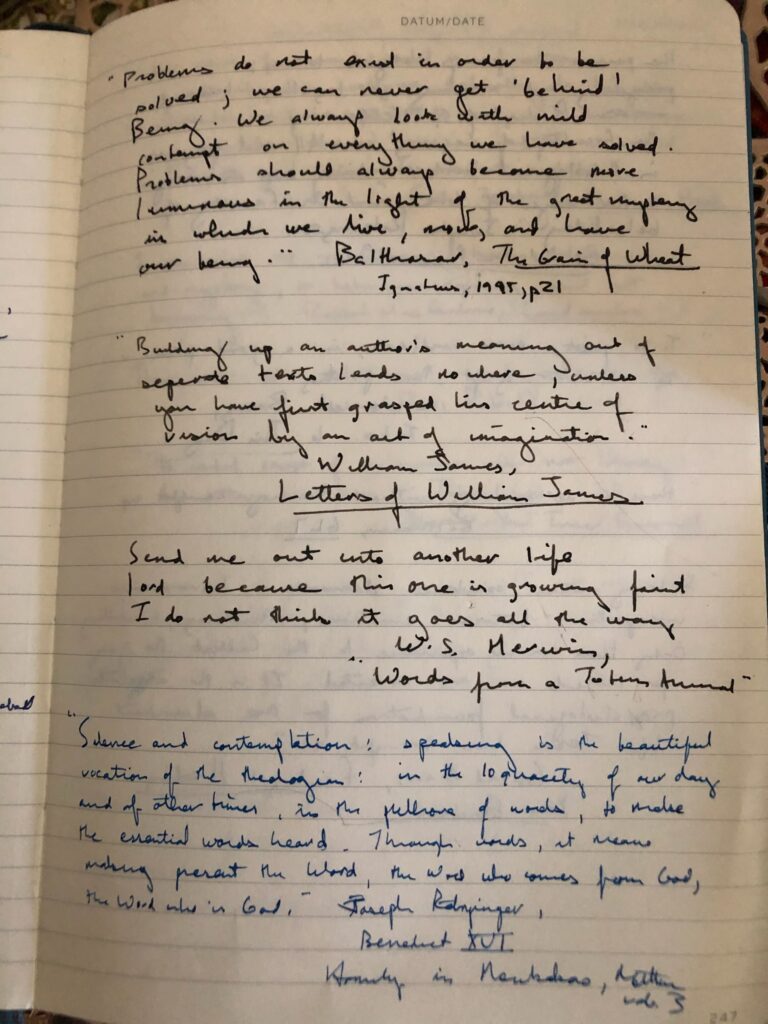“Theology is more than simply an effort of human reason to analyze and understand, along the lines of the experimental sciences. God cannot be reduced to an object. He is a subject who makes himself known and perceived in an interpersonal relationship. Right faith orients reason to open itself to the light which comes from God, so that reason, guided by love of the truth, can come to a deeper knowledge of God. The great medieval theologians and teachers rightly held that theology, as a science of faith, is a participation in God’s own knowledge of himself. It is not just our discourse about God, but first and foremost the acceptance and the pursuit of a deeper understanding of the word which God speaks to us, the word which God speaks about himself, for he is an eternal dialogue of communion, and he allows us to enter into this dialogue. Theology thus demands the humility to be “touched” by God, admitting its own limitations before the mystery, while striving to investigate, with the discipline proper to reason, the inexhaustible riches of this mystery.” Lumen Fidei par. 36
Many of the posts on this blog touch on the theme of mystery in theology. It is certainly a preoccupation of mine. As this quote highlights, mystery can be a short hand way of saying God is subject, personal, rather than object, and so God is not and can never be merely an intellectual pursuit.
One reason I think I return to this theme again and again is to remind myself to be careful. In the words of the quote, it is easy to slip into theology where reason orients faith, rather than theology where faith orients reason. Or to slip into a theology where God is object rather than subject.
What also struck me about this particular quote is the relationship between mystery and humility. Theology attuned to mystery will be humble, but such humility does not say there is nothing to say about God. Rather such humility revels in “the inexhaustible riches of this mystery.” Moreover, such humility does not diminish reason but rather properly orients it by seeking the “discipline proper to reason.”
In the classic Christian understanding, as the encyclical says, “faith orients reason”, that is faith seeks understanding, so mystery tells us something about the subject of Christian theology, namely the Triune God. But mystery isn’t a convenient way to sideline reason either. Rather it properly orients reason. Faith is trust in what God as person has said and done, and reason oriented by faith seeks to understand the meaning of these words, these actions. But mystery remembers that God is Triune, one in three persons, and so he is joyfully inexhaustible. The journey goes on and on, but it is not futile, rather it is joyful.








